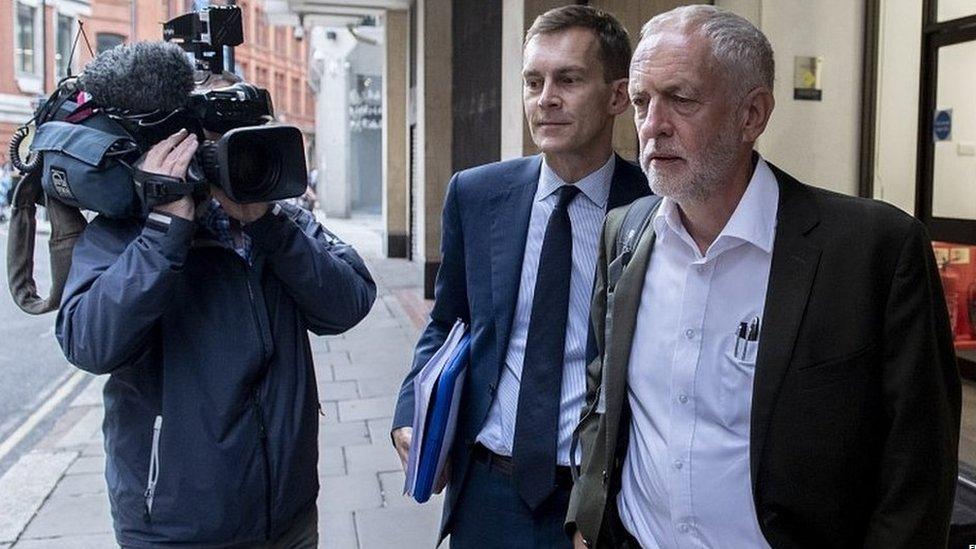Is Labour a step closer to resolving its anti-Semitism mess?
- Published

When Parliament packed up for its summer break, the Labour Party was already knee deep in a fierce fight about whether to accept in full what so many other organisations agree is how to describe anti-Semitism.
It wasn't entirely surprising they ended up there, given that under Mr Corbyn's leadership fears about anti-Semitism have been raised on many, many occasions.
But over the summer the mess got deeper and deeper, with new allegations about Mr Corbyn's own views and associations emerging. The definition itself became a totem of whether the party was serious about stamping out prejudice.
Finally today, Labour's ruling body agreed they would adopt the whole version, despite the clamour from some protestors outside its meeting.
Perhaps this marks the beginning of the end of this sorry mess. But what makes an early resolution tricky is the caveat that Labour has included alongside.
It will be important to many of Mr Corbyn's supporters who want the right to criticise Israel.
But for those campaigning against anti-Semitism, it still sends a message that Labour might want to make exceptions, that the party is saying "yes, but", rather than "yes, of course", to loud demands from the Jewish community that they take the strongest action possible against those who would foment tension.
And secondly, detractors will point to the statement I'm told Mr Corbyn himself suggested should be included alongside, which incorporated the following line - "It should not be considered anti-Semitic to describe Israel, its policies or the circumstances around its foundation as racist because of their discriminatory impact, or to support another settlement of the Israel-Palestine conflict."
That's not so different to one of the clauses that has been at the heart of the summer's dispute.
And after hours of argument it was clear that the NEC, the ruling body, simply would not accept it.
It's a measure of how serious the problem has become that even with his tight grip on the party, Mr Corbyn didn't get his own way.
But his personal desire to preserve that element in the Labour definition will be seen by many of his critics as a sign that he still doesn't get it.
There will also still be a consultation on the NEC's decision, as well as many cases of alleged anti-Semitism to resolve.
There is still some way to go before the party has a hope of drawing a final line.